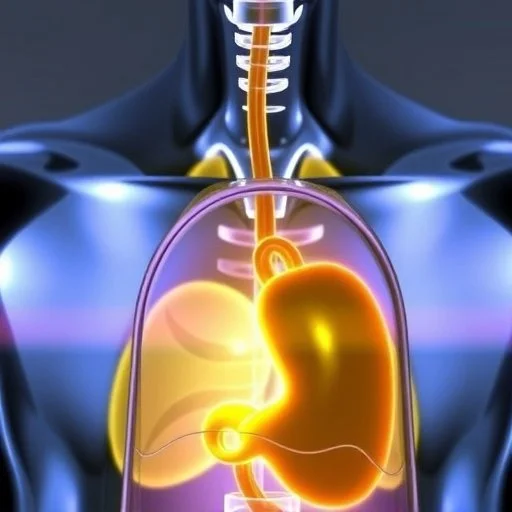From A to O: How Enzymes Could Save Countless Lives
Photo Credit: Bioengineer
As of Oct. 8, nearly 600 people in BC are waiting for organ transplants, according to BC Transplant. A pair of colleagues at the University of British Columbia (UBC) hope to decrease this number by improving access to the pool of organs available to patients. Dr. Stephen Withers and Dr. Jayachandran Kizhakkedathu are engineering a new solution that makes blood and organs compatible with any patient.
Their approach is complex and examines the biology that makes organ compatibility so intricate. Cells and tissues that make up the human body carry microscopic markers on their surfaces called antigens. Antigens are small sugar molecules that act as identification signals, allowing the immune system to distinguish between the body’s own cells and foreign invaders, such as bacteria or viruses. These blood types, categorized as A, B, AB, and O, describe the type of antigen each person’s blood cells and tissues carry on their surfaces.
For those with type O negative, the antigens are absent, making them a universal donor. Without any antigens on their red blood cells and tissues, they do not trigger an immune response in recipients. This is where Withers and Kizakkedathu began their research project, with the question: What if it were possible to neutralize the antigens in donated organs or blood?
The concept of stripping away cell antigens began in 2010, when Withers and Kizakkedathu turned their attention to a certain bacterium living in the human gut. This bacterium feeds on mucin, the molecule that makes up the internal lining, according to the UBC Faculty of Science. Mucin has A and B antigens, and Withers and Kizhakkedathu discovered that the bacteria were producing enzymes that allowed it to successfully remove and consume the mucin AB antigens.
By isolating these enzymes, the researchers successfully developed an efficient way to remove the type A antigens, leaving behind cells that were type O. Dr. Withers told UBC Science News that this process was similar to “removing red paint from a car and uncovering the neutral primer.”
By 2022, Withers and Kizhakkedathu’s universal donor technology was being tested by a team in Toronto. Using the newly isolated enzymes, the researchers successfully converted the blood type of donated lungs, kidneys, and blood in a lab. After confirming that these conversions worked outside the body, the next challenge was to determine whether the treated organs could survive within a living human.
In a joint effort with colleagues in China, the research team prepared an A-type kidney for transplant. The antigens were treated with enzymes to have their blood markers stripped away to the neutral “primer,” effectively converting the organ to type O. The kidney was then transplanted into the body of a brain-dead recipient, whose family had approved of the test.
Normally, when an incompatible organ is transplanted into the wrong environment, the immune system destroys it within minutes. However, the enzyme treatment prevented the immune recognition. The kidney continued to function for two days without developing any blood antigens. By the third day, some antigens reappeared, but the immune reaction was significantly weaker as the body had begun to acclimate to the organ.
To work through challenges encountered, Withers and Kizhakkedathu continue to refine their techniques, hoping their work will change the way blood and organ donations are used in the future. If antigen types are no longer a barrier, Canada’s transplant waitlists could be dramatically reduced, according to UBC Science News. The technology could improve health outcomes around the world.
Dr. Kizhakkedahthu notes that while “Canada [has] an excellent blood bank system [...] some places in Africa and Asia, where resources are limited and they don’t have the same infrastructure, this could be incredibly useful.” This new technology could especially help those living in rural areas, according to the UBC Faculty of Science.
While the studies conducted have shown promising results, not everybody in the medical community agrees on the need for this technology. Some transplant surgeons argue that the approach is unnecessary when incompatible organs can be transplanted if recipients take immune-suppressing drugs that weaken the body’s rejection response, according to CTV News.
However, Dr. Withers notes that properly suppressing a patient can take up to a week, an amount of time that many patients don’t have. Their concept requires no “significant preconditioning” of the recipient, and the process to modify the organ itself only takes one hour.

